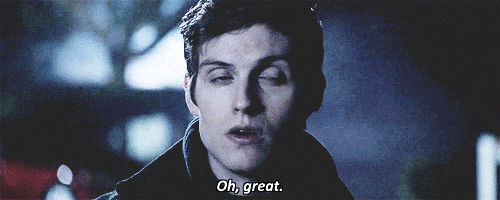I've been an education major for almost a year and a half now. By this point, the most offensive phrase I could possibly hear is, "Those who can't do, teach." I have done more than I ever thought I would in this short time of college. Being a future educator has been one of the toughest things I've ever done, and all of us in this boat have worked harder than you could ever imagine. We have fought with our claws just to cling on to our sanity by the skin of our teeth. After a particularly difficult week of school, I was inspired to write what I hope will serve multiple purposes.
Firstly, I want my fellow education majors to know that they are not alone in their struggles. We're all going through a lot of the same things, and it's nice to have some sort of support system there.
Secondly, and perhaps much more importantly, I want our friends, families, and significant others to get a glimpse of what we're dealing with. Maybe your boyfriend doesn't understand why you cry every summer over something called a clearance? Or maybe, your mom doesn't know what to say when you have your third full-scale psychological meltdown of the week. I hope that this article can resonate well with you and help your loved ones understand why you are such a wreck all the time.
Let's start with those clearances.
The first thing you need to know is that clearances are a pain in the rear end. Clearances, essentially, are documents that legally allow us to go into the schools for our field placements. They state that we aren't criminals and won't harm children. While this is certainly a necessary asset for a teacher, it's a finicky process to get them completed and filed. Plus, if you don't have them in on time, you can't go to your field placement. Which brings us to another stressful topic.
Field placements.
Field placements are the precursor to student teaching. We go out into the schools, usually a couple times a week for a few hours each day, and we are a part of a classroom. Sometimes we observe, sometimes we teach, and sometimes we just help out. It's a way for us to become absorbed in classroom life and feel our way around the profession. While it's beneficial, it's time consuming. It cuts out a lot of our homework time, which is why we're so stressed out. Besides, you never know what crazy things are going to happen in the classroom. Children, of all ages, will surprise you with their antics. It can be a lot to handle.
We'll also complain about our field notes.
Field notes are what we have to complete after each week that we spend in the schools. It's a repetitive format that takes up to an hour to complete. While the purpose is to describe our field experience, it often becomes a process of simply reiterating the same thing multiple times. It's such a drag, especially considering that we would rather describe what we took away from the experience in greater detail than just filling out a chart.
But field notes are only an inconvenience; the real horror lies in the existential question of whether we will be accepted into our school's education department and be able to continue as education majors.
Every school has different requirements, but there tends to be a general agreement across the board: In order to be officially accepted by the university as an education major, there are a lot of painstaking processes you have to go through. For one, your GPA must remain high. Typically, you need to be working for a 3.0-3.5 every semester. There are also standardized tests you have to take, and they cost A LOT of money. Most people fail and have to retake them multiple times. I know someone who spent $500 on these exams. So if you combine grades, test scores, and field performance, getting into the department is no piece of cake.
So let's say you do it. Let's say you can get past all of the clearances, placements, notes, and high-stakes testing. There's still one problem left, and that's the actual teaching part.
Jobs are hard to find. There are so many different kinds of school systems that it's hard to find one you're happy with. You'll probably have to move around a lot until you find the right fit. And even when you do, there's still the fact that nothing is going to pay very much. We'll be living off of unimpressive wages for the rest of our lives.
So why do we do it?
Well, we love it. We love our subject, we love our students, and we love teaching. Education majors go through all of this because they know it's where they're meant to be.
But just because we're happy with our career choice doesn't mean you should negate our struggles. The next time you see an education major breaking down, buy them a coffee. Or maybe you could write them a huge check. Whatever works.


























